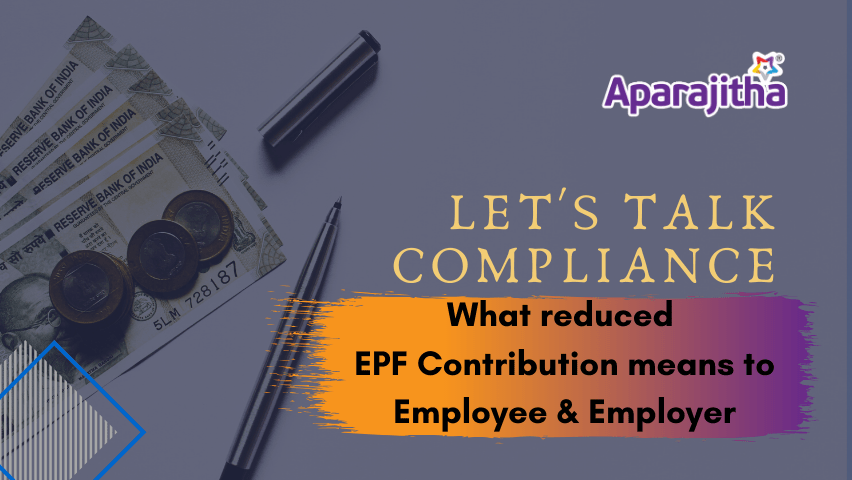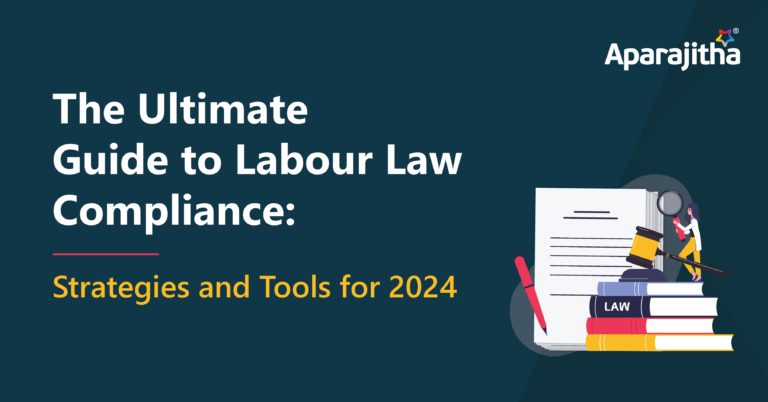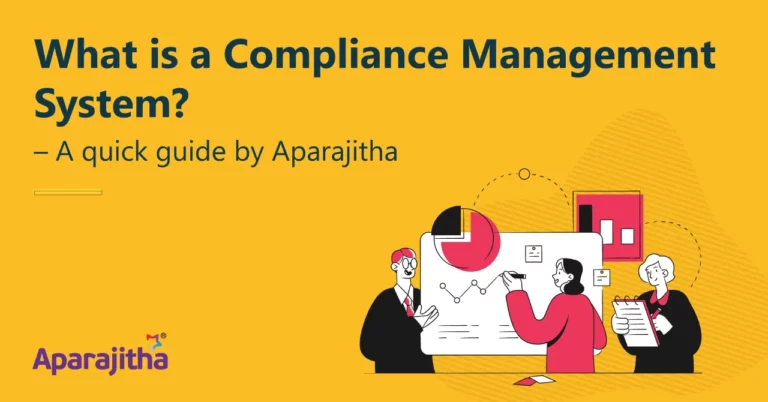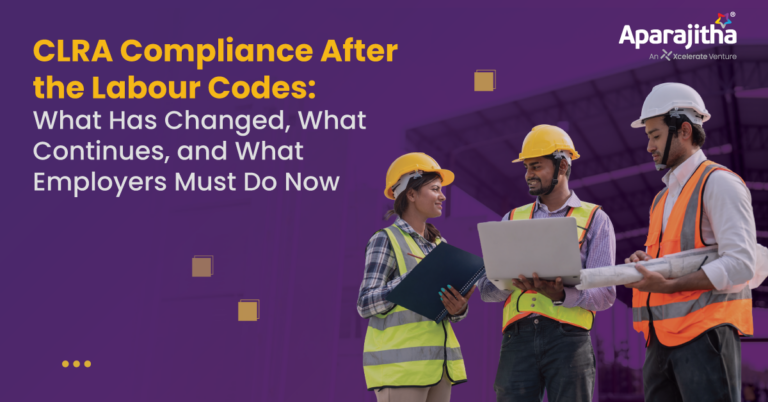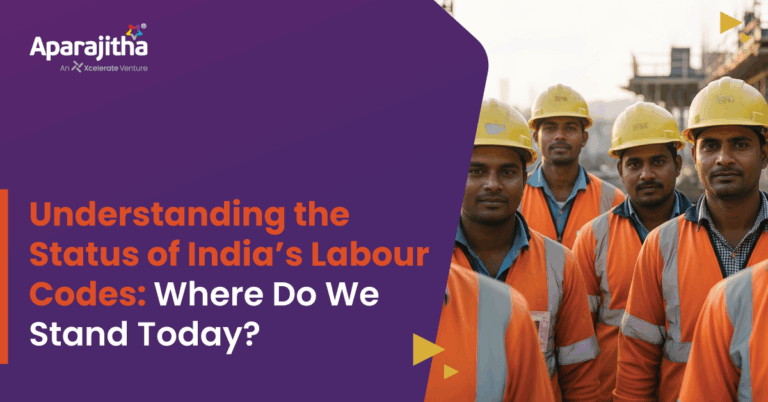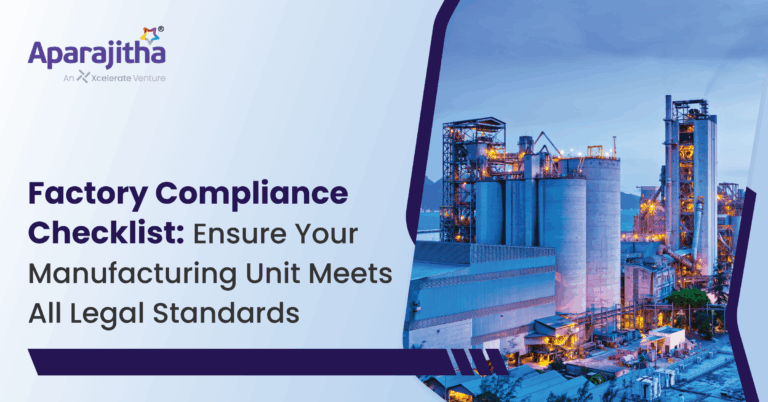Understanding on EPF reduced Contribution 10%
Ministry of Labour & Employment vide its notification No. S.O. 1513(E) Dt. 18th May’2020
Section 6 of EPF (MP) Act, 1952 reads as under;
Contributions and matters which may be provided for in Schemes. – The contribution which shall be paid by the employer to the Fund shall be ten percent. Of the basic wages, dearness allowance and retaining allowance, if any, for the time being, payable to each of the employees whether employed by him directly or by or through a contractor, and the employee’s contribution shall be equal to the contribution payable by the employer in respect of him and may, if any employee so desires, be an amount exceeding ten percent of his basic wages, dearness allowance and retaining allowance if any, subject to the condition that the employer shall not be under an obligation to pay any contribution over and above his contribution payable under this section:
Provided that in its application to any establishment or class of establishments which the Central Government, after making such inquiry as it deems fit, may, by notification in the Official Gazette specify, this section shall be subject to the modification that for the words “ten percent”, at both the places where they occur, the words “12 percent” shall be substituted:
……..
……..
In the main provision of Section 6, “Ten Percent” (10%) appears in 2 places. Through 1st proviso of Section 6, Central Government has the power to replace the percentage into “Twelve Percent” (12%) by notification in the Official Gazette. Accordingly the Central Government published its notification dated 9th April 1997 stating that 12% is applicable for all establishments except the following industries can continue to contribute 10% on behalf of its employees covered under these industries:
- Establishments in which less than 20 persons are employed
- Any sick industrial company….
- Any establishment which has accumulated loss in the financial year…
- Any establishment in
- Jute Industry
- Beedi Industry
- Brick Industry
- Coir Industry
- Gaur gum Factories
Now, Central Government has included all the establishments other than Government establishments, public sectors’ establishments and the establishments covered under PMGKY Package by adding as (v) clause in 9th April 1997 notification. Hence, these establishments can now pay contributions from 12% of employee’s salary to 10% for next 3 months (wage months of May, Jun & Jul 2020), as part of its coronavirus relief measures so as to provide more take home salary to employees and also to give relief to employers in payment of Provident Fund dues.
Detail break-up various account in EPFO Challan is furnished hereunder.
| A/c No.1 [EPF] | A/c No.2 [Admin] | A/c No.10 [EPS] | A/c No.21 [EDLI] | |
| Employee | 10% | NIL | NIL | NIL |
| Employer | 1.67% | 0.5% | 8.33% | 0.5% |
FAQ:
- Can an employer continue to contribute @ 12% (i.e) more than the prescribed rate of 10% to its employees?
Answer: Yes. As per current EPFO portal, employer can choose now 10% or 12%
- Can an employee continue to contribute @ 12% (i.e) more than the prescribed rate of 10% to its employees?
Answer: Yes – Such higher rate (2%) of contribution shall be considered as Voluntary Provident Fund (VPF)
- Does this change has any impact on Voluntary Provident Fund (VPF) which the employee has been contributing already?
Answer: No. The member can continue to contribute at the rate he/she opted.
- Is this benefit (reduced rate of contribution) applicable to International Workers too?
Answer: Yes, reduced contribution is equally applicable to International workers too. However contribution @ 10% on full wages without any ceiling limit.
- Will the enhanced take home pay would have an impact on the employees on TDS (Income Tax)?
Answer: Yes – Cut in the employees’ contribution eventually will mean that the corresponding tax break will also reduce to the same extent.
6. Does the reduction in PF contribution by the employer, reduction in Employee’s CTC?
Answer: Not Necessary – provided the employer pass on the benefit to the employee in accordance to their employment contract.
Aparajitha a pioneer in Compliance industry, provide comprehensive solutions for all your Statutory and Regulatory compliance needs.
Based on our 20 years of expertise we have designed and created a Global e-compliance software called Compfie. Compfie is a holistic SaaS platform that tracks ur Organisations compliance status, notification, and updated information across domain such as Labour, Employment & Industrial law, Environmental, Health & Safety related Law, Fiscal Law, Corporate & Commercial Law, Industry Specific Law, Standards & Policies, Vendor Compliance Management.
By
Team Aparajitha
Disclaimer: “The article represents the opinions of the author and the author is solely responsible for the facts, cases and legal or otherwise reproduced in the article”

